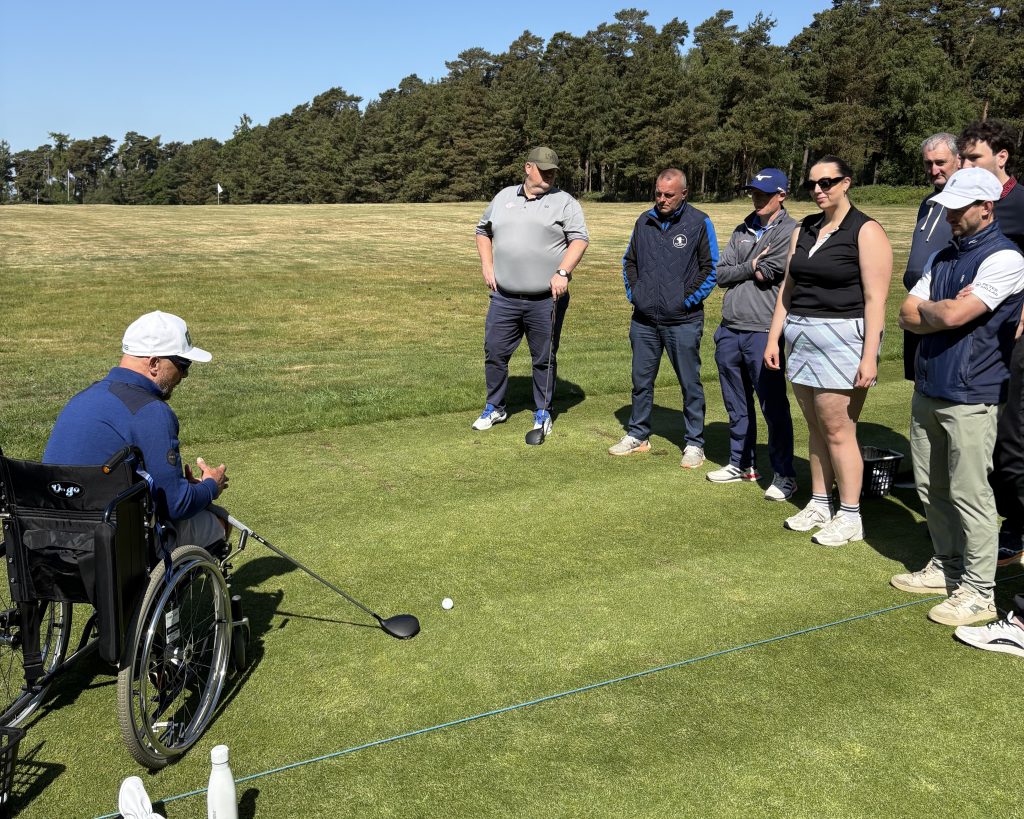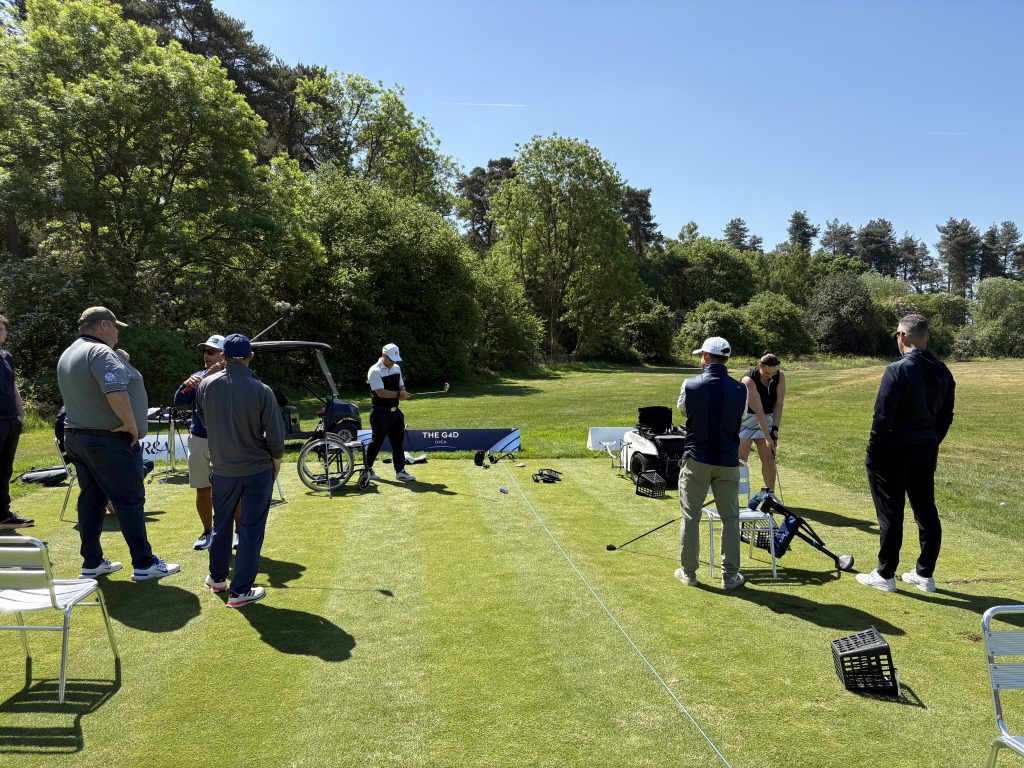Taylor brings ‘Learning from the Edges’ session to G4D at Woburn

PGA Fellow Professional Mark Taylor provided an insight into coaching for golfers with functional variations during an engaging session at Woburn.
Taylor, Head of Instruction and Education at EDGA, delivered an interactive two-hour coach education session at the host venue for the G4D Open in May, welcoming a group of PGA Professionals to enhance their skills through the Learning from the Edges programme.
Explaining the scope and purpose of the programme, which is embedded in 12 PGA organisations worldwide, Taylor said: “Learning from the Edges is taking extreme function – for example, a seated golfer in a wheelchair – and showcasing how we can develop coaching considerations for that individual, but also showcase how that limitation in function could be beneficial to a coach working with somebody who may have limited pivot, turn or rotation.
“We’re moving away from ‘disability training’ and instead focusing on making coaches more adaptable. The goal is to help coaches better understand and serve diverse client bases.”
The session was highly practical in its focus and utilised a range of equipment, including a ParaMotion device, a wheelchair, and an innovative new tool that can improve access to golf for those with arthritis and other conditions impacting hand functionality.
With 16% of the world’s population having some form of disability, Taylor underlined the keen importance of making golf accessible through appropriately targeted coaching.
“We’re striving to educate the workforce as a whole,” he said. “Even if there are coaches who do not happen to have any contact with a player with a different function, they’re going to be better placed to understand the varied functions of the demographic that they’re coaching in the general population.
“What we want is to be able to provide those who have different functions with the best possible experience when they go to golf facilities, and that means having coaches who understand the variations and limitations of the players they’re seeing at their facility.”

Speaking at the G4D Tour’s flagship event at Woburn, Taylor highlighted the need for coaching support from the entry level to the elite standard on show at the Bedfordshire venue.
“We’re seeing a huge development in golfers with disability, and people want to get on board with the G4D Open and other events like it,” he said. “These are high-level events with strong fields and excellent players, and that requires more of a performance coaching standard to support the competitors at the top end of the pathway.”
Taylor took on his current role in 2017 and has been buoyed by the improvements he has seen in that time, but he is eager for that trend to continue.
“We’re definitely seeing progress by the number of players we’re seeing coming through and the support they’re receiving at club level,” he said. “What I’d like to see more of is the coaching workforce proactively engaging with communities to encourage these individuals with disabilities into the game to really strengthen the pathway and bring the benefits of golf – with everything we know it can do for people’s physical and mental health – to as many people as possible.”
